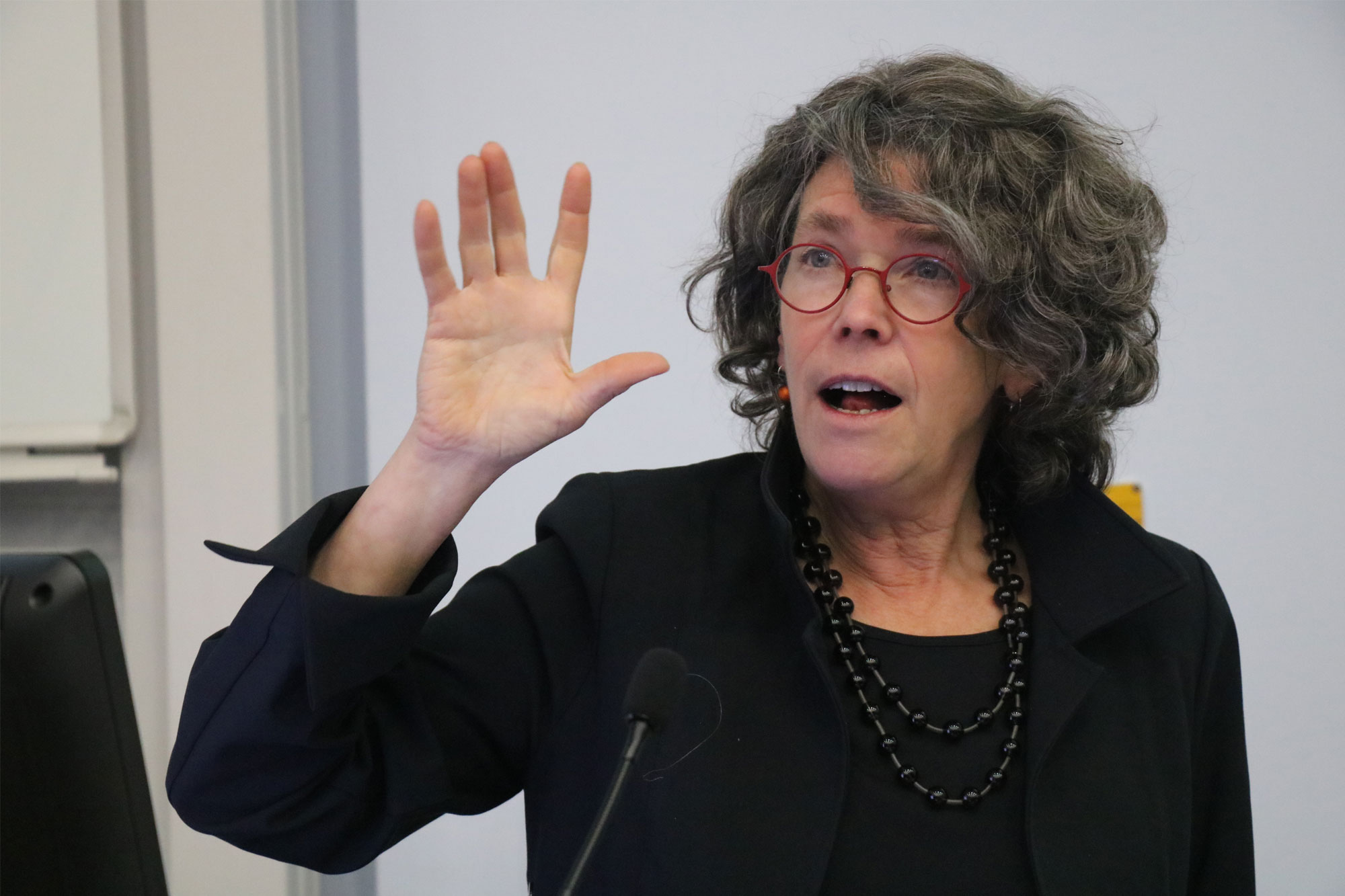The annual Stirling Lecture is a platform in which anthropological experts from different sub-fields of the discipline are invited to share their knowledge and expertise with the academic community at Kent. Hosted by the School of Anthropology and Conservation, and named after the founder of Anthropology at Kent, Professor Paul Stirling, it is an open opportunity for all students to expand their knowledge and is a privilege that greatly enhances the studying experience at the University of Kent.
This year, the School was honoured to host Professor Tanya Marie Luhrmann from Stanford University whose talk, entitled ‘The Way We Think About Thinking Matters’, proved a stimulating experience, nurturing a strong curiosity amongst those in attendance. Professor Luhrmann’s research subjects range from evangelical parishes in the United States to communities in Ghana and India, and examines the ways in which different cultures experience cognition and ‘inner-senses’. Furthermore, her work examines the niche facets that make up the human mind and inner-thought, in particular voices and visions, and interrogates whether or not these are supernatural phenomena or manifestations of psychosis. Her research looks at the ways in which certain populations hear ‘voices’ and how their respective cultures interpret them, whether as the voice of ‘God’, departed relatives or as symptomatic of mental illness. Furthermore, Professor Luhrmann’s work has been critical to understanding cultural concepts of thought and has been groundbreaking within the field of anthropology.
Given at Keynes College to a packed auditorium,Professor Luhrmann unveiled the theory and process behind her fieldwork. She began by examining what is constituted by a ‘voice’ and continued by drawing parallels between the experiences of evangelical Christian groups and those of pagan magicians in which both groups experienced what can only be considered ‘sensory override’, a brief, rare and startling experience in which the person/persons involved heard a voice outside of their known senses.
Her work on psychosis highlights that Western populations, especially those in the US, are more likely to interpret these ‘heard’ voices as a negative stimulus, and, in almost all cases, the voices spoke words of disapproval. Professor Luhrmann suggested that this negativism comes from Western populations being more impoverished spiritually, which in turn has resulted in imagining the mind as a private possession. This helps to explain why Western populations are less inclined to share mental experiences and speak about problems related to mental health.
In comparison, populations from Chennai in India interpreted the voices as someone they knew and were almost always positive in tone and message, whilst in Accra (Ghana), the voices were split almost evenly into positive and negative ones, and those having the experience interpreted it, in most cases, as the voice being present to ‘keep them company’. Professor Luhrmann concluded by suggesting that the more the mind is imagined as an internalised presence, the more likely the individual is to experience a voice.
Ultimately, the lecture was an ethnographic exploration of the human mind and was exceptionally received by the audience. Whilst the content was rigorous and stimulating, Tanya Luhrmann’s charisma and engaging approach to the subject was inspirational to behold. To sum up, this year’s Stirling Lecture can only be described as ‘thought’-provoking.
By Oliver Trapnell (BSc Anthropology)

